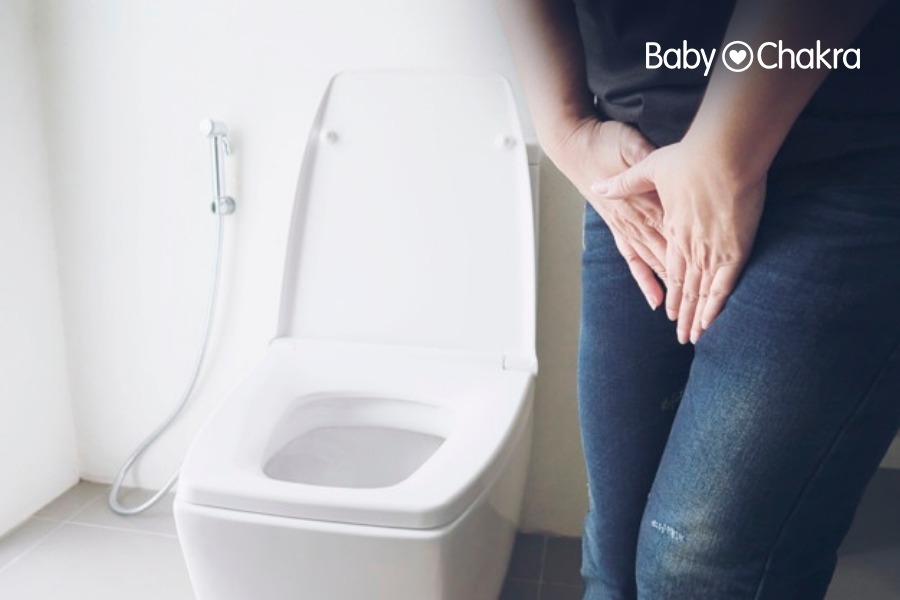
UTI During Pregnancy: What To Do When You Can’t Control Your Pee!
12 Feb 2022 | 4 min Read
Manisha Pradhan
Author | 1053 Articles
A urinary tract infection (UTI) affects one or more parts of your urinary system. The majority of UTIs are caused by bacteria. Women are more prone to UTI.
It can be especially troubling if you’re expecting and it is mostly advised to inform your doctor if you suspect you think you have such an infection. You and your baby should be alright if you take adequate care of them.
These infections usually affect the bladder and urethra. However, they can sometimes result in kidney infections. If they occur, UTIs can cause premature labor and low birth weight.
Symptoms Of UTI During Pregnancy
- Peeing more frequently or having an urgent desire to pee
- Peeing difficulties
- Lower back or lower belly cramps or a burning feeling
- When you pee, you get a scorching sensation.
- Urine that appears hazy or smells
- Your pee may turn crimson, hot pink, or cola-colored due to blood in it.
Pregnancy Incontinence
One of the first indicators of pregnancy and UTI is frequent urine. Urine leakage, often known as incontinence, is a frequent symptom both during and after pregnancy.
Approximately 54.3 percent of pregnant women experience negative effects on their quality of life, including travel and emotional issues. Symptoms can become more severe as the infant grows older and can linger for several weeks following birth.
If you’re having problems with incontinence, go to your doctor. It could be a UTI, and you’ll require antibiotics in some circumstances. You can confuse leaky urine with leaking amniotic fluid if you’re nearing the end of your pregnancy. It’s advisable to consult your doctor to find out what’s causing your symptoms.
Lifestyle adjustments and bladder management are the initial lines of treatment for pregnancy incontinence.

Bladder retraining is educating your bladder to hold more urine
Image Source:medicalnewstoday.com
Here are some suggestions for bladder management:
- Bladder Journal: Keep track of when you have the most leaks so you can arrange your excursions accordingly. This is also the first step in retraining your bladder. Bladder retraining is educating your bladder to hold more urine by increasing the amount of time between trips.
- Avoid carbonated drinks and caffeine: Stay away from carbonated beverages, coffee, and tea. These beverages may cause you to need to use the restroom more frequently. Drink extra water or caffeine-free beverages. (Limit your beverages in the evening to avoid repeated trips to the bathroom and leaking in the middle of the night.)
- Fiber: Eat a high-fiber diet to minimize constipation, which puts additional strain on your pelvic floor.
- BMI: Excess weight, particularly around the midsection, puts strain on the bladder. Incontinence after pregnancy can be helped by losing weight after childbirth.
- Kegel exercises: This exercise is a great way to strengthen your pelvic floor. Before, during, and after pregnancy, they’re a safe and effective form of exercise.
To do a Kegel, concentrate on the muscles that help you hold pee in. Before relaxing, squeeze them for ten seconds. Each day, try to complete five sets of these exercises. It may be beneficial to learn how to relax your pelvic floor before, during, and after labor.

Kegel exercise helps to relax your pelvic floor before, during, and after labor
After the signs of labor and infection have passed, your doctor may order more tests. A bladder scan with ultrasound can determine whether your bladder is emptying completely. When you cough or lean down, your doctor can use a bladder stress test to see if you’re leaking.
Incontinence after pregnancy might be exacerbated by giving birth. Muscles and nerves may be harmed during vaginal birth. Nerve injury can also occur as a result of long labor or continuous pushing. During the first year after birth, a cesarean delivery minimizes incontinence. The advantages, however, fade away two to five years after delivery.
A


Related Topics for you
Suggestions offered by doctors on BabyChakra are of advisory nature i.e., for educational and informational purposes only. Content posted on, created for, or compiled by BabyChakra is not intended or designed to replace your doctor's independent judgment about any symptom, condition, or the appropriateness or risks of a procedure or treatment for a given person.
